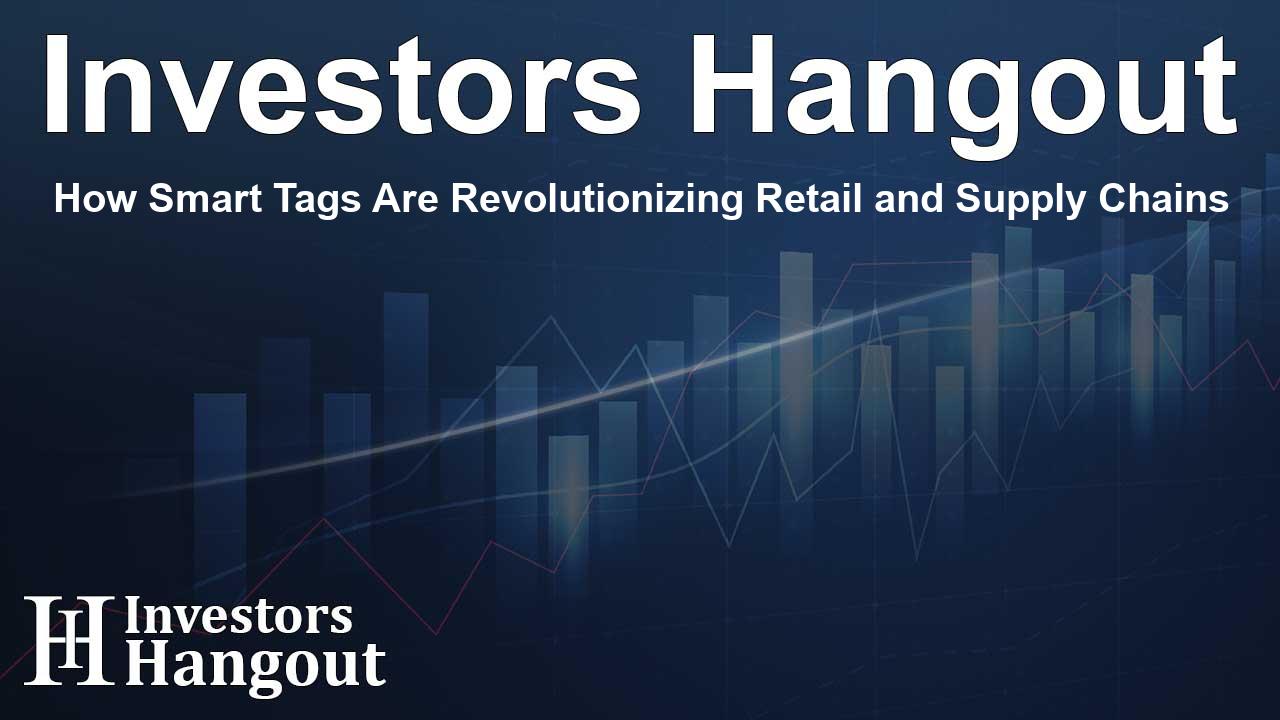How Smart Tags Are Revolutionizing Retail and Supply Chains

Introduction to Smart Tags
The global Smart Tag market is on a remarkable trajectory, forecasted to grow from approximately USD 10.79 billion in the near future to a staggering USD 26.28 billion by 2030, reflecting a robust Compound Annual Growth Rate (CAGR) of 16.0%. This tremendous growth is attributed to the integration of advanced technologies like artificial intelligence (AI) and retail automation, influencing various sectors globally.
Drivers of Smart Tag Market Growth
Smart tags have emerged as a cornerstone for connected commerce and intelligent logistics. Their indispensable nature spans across diverse industries, including retail and healthcare, largely due to the growing demand for accuracy and traceability. By facilitating dynamic data sharing and enabling real-time decision-making, smart tags fit seamlessly into modern digital ecosystems.
Key Growth Influencers
1. **Enhanced Visibility and Security**: Businesses leveraging smart tagging technologies attain improved visibility into their supply chains, enhancing security and engagement with consumers. This is vital as companies navigate the complexities of digitized operations.
2. **Automation Trends**: The ongoing shift toward automation necessitates the adoption of smart tags as they serve as essential elements of the evolving digital economy and next-generation infrastructures.
Technological Innovations Shaping the Landscape
Several trends are amplifying smart tag adoption. For example, Electronic Shelf Labels (ESLs) have redefined retail management. They enable real-time price updates and instant inventory synchronization while connecting to a centralized data system, thus streamlining pricing accuracy and reducing manual labor costs.
The Role of EAS Labels
EAS labels bolster the Smart Tag market by integrating security measures in a compact format, enhancing product tracking and theft prevention. By merging radio-frequency detection with inventory management, retailers can efficiently monitor stock and safeguard their assets.
Sector-Specific Applications of Smart Tags
Smart tags find broad application across critical industries, significantly impacting healthcare and pharmaceuticals by providing precise tracking and ensuring compliance with regulations. Utilizing smart tags helps maintain the integrity of medicines and medical devices along the supply chain, from production to delivery.
The integration of technologies like RFID (Radio Frequency Identification) and NFC (Near Field Communication) provides healthcare institutions with real-time updates, supporting safety and efficiency in patient care operations.
Sustainability and Resource Efficiency
As industries increasingly prioritize environmental responsibility, smart tags facilitate resource optimization and reduction in paper usage by digitizing vital product information. This innovation not only enhances transparency but also supports recycling and resource reuse initiatives.
Challenges and Future Directions
While the smart tag market is burgeoning, businesses face various challenges, including the need for standardization across technologies and industries. Ensuring interoperability among different systems will be crucial for maximizing the potential of smart tags.
Moreover, as organizations transition toward digitization, the demand for seamless integration between smart tags and existing retail technologies will grow. This requires robust strategies and investment in new systems.
Conclusion
The Smart Tag market is set to reshape the future of retail and supply chain operations significantly. By embracing innovative technologies like AI and automation, businesses can enhance efficiency, transparency, and customer engagement. With a projected market size of USD 26.28 billion by the end of the decade, the opportunity for growth and transformation within the industry is immense.
Frequently Asked Questions
What exactly are smart tags?
Smart tags are advanced labeling technologies that utilize RFID, NFC, or other electronic means to enhance tracking, management, and security of products across various sectors.
How are smart tags used in retail?
In retail, smart tags help automate pricing, monitor inventory in real-time, and enhance customer engagement through personalized marketing efforts.
Why is sustainability important in the smart tag market?
Sustainability drives the adoption of smart tags as they help reduce waste, promote resource efficiency, and support environmentally friendly business practices.
What industries are benefiting from smart tags?
Industries such as retail, healthcare, logistics, and manufacturing are significantly benefiting from the implementation of smart tag technologies.
What future trends can we expect in the smart tag market?
Future trends include increased automation, enhanced integration of AI, and broader applications across various sectors, driving continued growth and innovation in the smart tag market.
About The Author
Contact Riley Hayes privately here. Or send an email with ATTN: Riley Hayes as the subject to contact@investorshangout.com.
About Investors Hangout
Investors Hangout is a leading online stock forum for financial discussion and learning, offering a wide range of free tools and resources. It draws in traders of all levels, who exchange market knowledge, investigate trading tactics, and keep an eye on industry developments in real time. Featuring financial articles, stock message boards, quotes, charts, company profiles, and live news updates. Through cooperative learning and a wealth of informational resources, it helps users from novices creating their first portfolios to experts honing their techniques. Join Investors Hangout today: https://investorshangout.com/
The content of this article is based on factual, publicly available information and does not represent legal, financial, or investment advice. Investors Hangout does not offer financial advice, and the author is not a licensed financial advisor. Consult a qualified advisor before making any financial or investment decisions based on this article. This article should not be considered advice to purchase, sell, or hold any securities or other investments. If any of the material provided here is inaccurate, please contact us for corrections.
